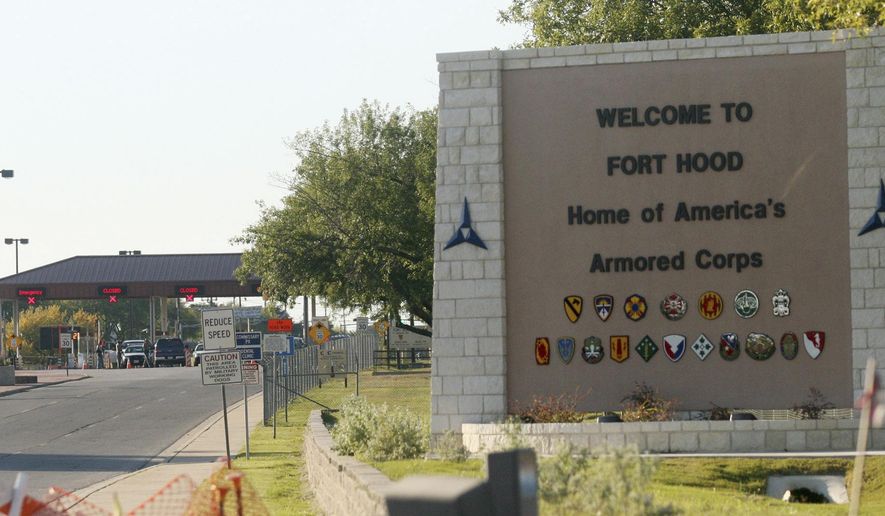A soldier who fails to show up for formation will be now considered “missing” before they are formally listed as AWOL — absent without leave, the Pentagon revealed Thursday.
The policy change, confirmed Thursday during an interview with senior Army leadership, comes after a summer of high-profile missing-person cases from Fort Hood, Texas, including Spec. Vanessa Guillen. She disappeared in April 2020 and was later found to have been killed by a fellow soldier who later took his own life.
Her case galvanized public attention and sparked congressional scrutiny into conditions for soldiers at the massive Army post in central Texas.
Following her disappearance, Spec. Guillen also was listed as AWOL because there was no other formal classification available.
“She was not AWOL but she wasn’t present for duty either,” said Gen. James McConville, the Army Chief of Staff. “If you’re not present for duty, you’re ’missing’ and not necessarily AWOL, which has a certain connotation to it.”
It’s as important to change the attitudes in the ranks about being missing as much as the policy itself, said Secretary of the Army Ryan McCarthy.
“They’re ’missing’ until we can prove why they’re ’missing.’ It’ll make our policy much tighter and more succinct,” he said.
In addition to the change in the Army’s AWOL policy, Spec. Guillen’s case also was the motivation for the “I Am Vanessa Guillen Act” which was introduced on Capitol Hill to address how the military deals with sexual harassment cases. Spec. Guillen’s body was identified about three months after the remains were found about 20 miles from Fort Hood. Before her disappearance, she told family members another soldier at her unit had been sexually harassing her.
“The Guillen family sent us their daughter and quite frankly, we didn’t take care of her,” Gen. McConville said.
A soldier will be declared as AWOL by the Army only after anyone who might have information about the whereabouts, such as friends and family, are contacted and interviewed, officials said.
“We wouldn’t leave a soldier behind in combat and we don’t want to leave them behind in garrison,” Gen. McConville said. “We’ll do whatever we can to work with the family or law enforcement to try and help them locate the soldier.”
• Mike Glenn can be reached at mglenn@washingtontimes.com.




Please read our comment policy before commenting.